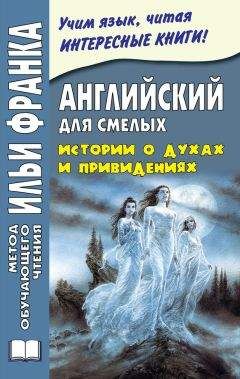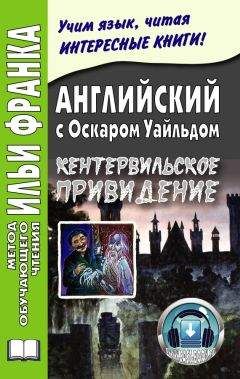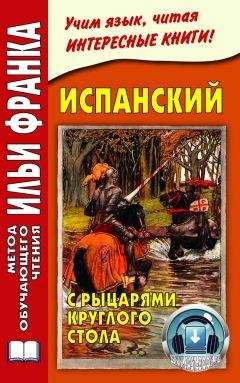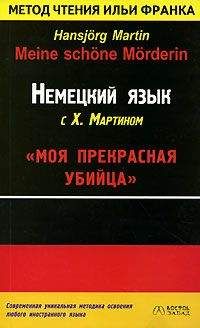Linkworth went to pay the penalty for the atrocious deed (Линкворт отправился расплачиваться за /свое/ зверское/ужасное злодеяние; to pay – платить; penalty – наказание; взыскание; штраф; to pay a penalty – расплачиваться; deed – действие, деяние), which no one who had heard the evidence could possibly doubt that he had done with the same indifference (которое, как не мог усомниться никто из тех, кто слышал свидетельские показания, он совершил с тем же равнодушием; evidence – ясность, наглядность, очевидность; /юр./ свидетельское показание) as had marked his entire demeanour since he knew his appeal had failed (что отмечало все его поведение, с тех пор как он узнал, что его прошение о помиловании отвергнуто; to fail – зд.: потерпеть неудачу; не иметь успеха). The prison chaplain who had attended him had done his utmost to get him to confess (тюремный священник, который посещал его, сделал все от него зависящее, чтобы вынудить его признать свою вину; utmost – /сущ./ самое большое, всe возможное; to confess – признавать/ся/; сознаваться; исповедоваться), but his efforts had been quite ineffectual (но его старания оказались совершенно безрезультатными), and to the last he asserted, though without protestation, his innocence (и он ему: «последнему» заявил о своей невиновности, хотя и не пытался протестовать). On a bright September morning (ясным сентябрьским утром), when the sun shone warm on the terrible little procession (когда солнце согревало своими теплыми лучами ужасную маленькую процессию; to shine – светить, сиять, озарять; warm – теплый) that crossed the prison yard to the shed where was erected the apparatus of death (что пересекла тюремный двор /по направлению/ к сараю, где воздвигли аппарат смерти), justice was done (свершилось правосудие), and Dr Teesdale was satisfied that life was immediately extinct (и доктор Тисдейл удостоверился, что смерть была мгновенной: «что жизнь была немедленно угасшей»; to satisfy – удовлетворять; убеждать; доказывать). He had been present on the scaffold (он присутствовал на эшафоте), had watched the bolt drawn (видел, как извлекли фиксатор; bolt – засов, задвижка; to draw – тянуть), and the hooded and pinioned figure drop into the pit (и фигура в капюшоне и со связанными руками обрушилась вниз; to pinion – связывать /руки/; to drop – капать; падать; валиться; pit – яма, углубление). He had heard the chunk and creak of the rope as the sudden weight came on to it (он услышал, как веревка всхлипнула и скрипнула под внезапным весом; chunk – лязганье, урчание, глухой всхлипывающий звук; to come on – наступать, надвигаться, обрушиваться), and looking down he had seen the queer twitchings of the hanged body (и, посмотрев вниз, увидел странные конвульсии повешенного; to twitch – дергаться, конвульсивно сокращаться; body – тело). They had lasted but a second or two (длились они всего секунду—другую); the execution had been perfectly satisfactory (казнь прошла абсолютно безупречно; perfectly – совершенно, в полной мере; satisfactory – удовлетворительный).
Linkworth went to pay the penalty for the atrocious deed, which no one who had heard the evidence could possibly doubt that he had done with the same indifference as had marked his entire demeanour since he knew his appeal had failed. The prison chaplain who had attended him had done his utmost to get him to confess, but his efforts had been quite ineffectual, and to the last he asserted, though without protestation, his innocence. On a bright September morning, when the sun shone warm on the terrible little procession that crossed the prison yard to the shed where was erected the apparatus of death, justice was done, and Dr Teesdale was satisfied that life was immediately extinct. He had been present on the scaffold, had watched the bolt drawn, and the hooded and pinioned figure drop into the pit. He had heard the chunk and creak of the rope as the sudden weight came on to it, and looking down he had seen the queer twitchings of the hanged body. They had lasted but a second or two; the execution had been perfectly satisfactory.
An hour later he made the post-mortem examination, and found that his view had been correct (часом позже он сделал вскрытие трупа и подтвердил правильность своей оценки: «и обнаружил, что его точка зрения была правильной»; post-mortem – посмертный /лат. «после смерти»/; examination – осмотр, обследование; post-mortem examination – вскрытие трупа): the vertebrae of the spine had been broken at the neck (были сломаны шейные позвонки; vertebra – позвонок; spine – спинной хребет; позвоночник; neck – шея), and death must have been absolutely instantaneous (и смерть, должно быть, наступила совершенно мгновенно). It was hardly necessary even to make that little piece of dissection that proved this (едва ли даже было необходимо производить это небольшое вскрытие, чтобы это подтвердить; piece – кусок; некоторое количество, небольшая порция), but for the sake of form he did so (но ради формы он это сделал). And at that moment he had a very curious and vivid mental impression (и в тот момент он получил весьма любопытное и /до крайности/ живое впечатление; mental – умственный) that the spirit of the dead man was close beside him (что дух покойного: «мертвого» человека находился рядом с ним), as if it still dwelt in the broken habitation of its body (как если бы он по-прежнему обитал в своей разрушенной оболочке; habitation – обиталище, обитель; body – тело). But there was no question at all that the body was dead (но не было ни /малейшего/ сомнения, что тело было мертво; there was no question – сомнений не было; question – вопрос; проблема, дело): it had been dead an hour (с момента смерти прошел уже час: «оно было мертво час»). Then followed another little circumstance that at the first seemed insignificant though curious also (затем случилось другое небольшое происшествие: «последовало другое маленькое обстоятельство», которое сначала казалось незначительным, хотя и столь же любопытным). One of the warders entered (вошел один из тюремщиков), and asked if the rope which had been used an hour ago, and was the hangman’s perquisite, had by mistake been brought into the mortuary with the body (и спросил, не принесли ли по ошибке в морг вместе с телом ту веревку, что была использована час назад и считалась собственностью палача; perquisite – привилегия, прерогатива, что-то, считающееся находящимся в чьем-либо преимущественном праве). But there was no trace of it, and it seemed to have vanished altogether (но она исчезла без следа: «не было ни следа ее», казалось, она совсем исчезла), though it was a singular thing to be lost (хотя казалось странным, что ее можно было потерять: «это была странная вещь, чтобы быить потерянной»; singular – необычный, своеобразный, странный): it was not here; it was not on the scaffold (ее не было в морге; не было ее и на эшафоте). And though the disappearance was of no particular moment it was quite inexplicable (и хотя ее исчезновение не имело какого-либо особенного значения, это было совершенно необъяснимо; moment – зд.: важность, значение, значимость).
An hour later he made the post-mortem examination, and found that his view had been correct: the vertebrae of the spine had been broken at the neck, and death must have been absolutely instantaneous. It was hardly necessary even to make that little piece of dissection that proved this, but for the sake of form he did so. And at that moment he had a very curious and vivid mental impression that the spirit of the dead man was close beside him, as if it still dwelt in the broken habitation of its body. But there was no question at all that the body was dead: it had been dead an hour. Then followed another little circumstance that at the first seemed insignificant though curious also. One of the warders entered, and asked if the rope which had been used an hour ago, and was the hangman’s perquisite, had by mistake been brought into the mortuary with the body. But there was no trace of it, and it seemed to have vanished altogether, though it was a singular thing to be lost: it was not here; it was not on the scaffold. And though the disappearance was of no particular moment it was quite inexplicable.
Dr Teesdale was a bachelor and a man of independent means (доктор Тисдейл был холостяком и человеком материально независимым: «независимых средств»), and lived in a tall-windowed and commodious house in Bedford Square (и жил в просторном доме с высокими окнами на Бедфорд-Сквер), where a plain cook of surpassing excellence looked after his food (где некрасивая кухарка, обладающая непревзойденным мастерством, заботилась о его питании; plain – простой; некрасивый; surpassing – исключительный, превосходный, непревзойденный; excellence – непревзойденное мастерство, искусство), and her husband his person (а ее муж – о его персоне). There was no need for him to practise a profession at all (для него не было /ни малейшей/ необходимости практиковать свою профессию), and he performed his work at the prison for the sake of the study of the minds of criminals (и своей работой в тюрьме он занимался ради изучения образа мышления: «умов» преступников). Most crime (большинство преступлений) – the transgression, that is, of the rule of conduct which the human race has framed for the sake of its own preservation (то есть выхода за рамки поведения, которые человеческая раса сформировала ради самосохранения; transgression – нарушение /закона, обязательства и т. п./; неповиновение, непослушание; rule – правило; frame – скелет, каркас, остов; рама, рамка) – he held to be either the result of some abnormality of the brain or of starvation (он считал следствием либо какой-то патологии мозга, либо же нищеты: «голода»; to hold – держать; полагать, считать; рассматривать; abnormality – ненормальность, неправильность, отклонение; аномалия; to starve – голодать, умирать от голода). Crimes of theft, for instance, he would by no means refer to one head (кражи: «преступления кражи», например, он никоим образом не относил к одной рубрике = разновидности; head – зд.: заголовок, рубрика); often it is true they were the result of actual want (часто, это правда, они являются следствием реальной нужды; want – недостаток, нехватка; нужда; нищета), but more often dictated by some obscure disease of the brain (но чаще диктуются каким-то непонятным заболеванием мозга; obscure – непонятный; неизвестный; малоизвестный). In marked cases it was labelled as kleptomania (в характерных случаях это называют клептоманией; marked – отмеченный, помеченный, маркированный; явный, заметный; to label – категоризировать, относить к какой-либо категории; label – ярлык, этикетка), but he was convinced there were many others which did not fall directly under dictation of physical need (но он был убежден, что многие другие /случаи/ не попадают прямо под стремление удовлетворить физические нужды; dictation – повеление, приказание; диктат). More especially was this the case where the crime in question involved also some deed of violence (в особенности это относится к тем случаям, когда преступление сопряжено с актом насилия; in question – зд.: данный, обсуждаемый, о котором идeт речь; to involve – включать в себя, содержать), and he mentally placed underneath this heading (и он мысленно поместил под этой рубрикой), as he went home that evening (пока он шел домой этим вечером), the criminal at whose last moments he had been present that morning (преступника, при последних минутах жизни которого он присутствовал этим утром). The crime had been abominable (преступление было ужасающим), the need of money not so very pressing (нужда в деньгах не такой уж срочной; pressing – /прил./ тягостный, обременительный; давящий; неотложный, спешный, срочный), and the very abomination and unnaturalness of the murder inclined him to consider the murderer as lunatic rather than criminal (и сама омерзительность и противоестественность убийства склоняла его к мысли, что убийцу надо рассматривать скорее как сумасшедшего, нежели преступника; to consider – рассматривать, считать). He had been, as far as was known, a man of quiet and kindly disposition (он был, насколько было известно, человеком тихого и доброго нрава; disposition – нрав, характер), a good husband (хорошим мужем), a sociable neighbour (общительным соседом). And then he had committed a crime, just one, which put him outside all pales (а затем он совершил преступление, всего лишь одно, которое поместило его за пределами всяческих границ; pale – границы, пределы; рамки; outside all pales = outside the pale – перейти все границы /приличного/). So monstrous a deed; whether perpetrated by a sane man or a mad one, was intolerable (такое ужасающее деяние, совершенное ли человеком в здравом рассудке или сумасшедшим, терпеть было нельзя; sane – нормальный, в своем уме, в здравом уме; intolerable – нестерпимый; недопустимый; to tolerate – выносить, терпеть); there was no use for the doer of it on this planet at all (тому, кто мог совершить такое, совсем не было места на этой планете; use – yпотребление, применение, использование; doer – тот, кто делает). But somehow the doctor felt that he would have been more at one with the execution of justice, if the dead man had confessed (но почему-то доктор чувствовал, что он был бы более в согласии с отправлением правосудия, если бы казненный признал свою вину: «если бы мертвый мужчина признался»; execution – выполнение /работ, обязанностей, функций/; свершение). It was morally certain that he was guilty (в моральном отношении не было сомнений, что он был виновен; morally – морально; нравственно; в нравственном отношении; certain – /предик./ верный, известный; бесспорный), but he wished that when there was no longer any hope for him he had endorsed the verdict himself (но ему бы хотелось, чтобы, когда для преступника более не оставалось надежды, тот бы сам согласился с приговором; to endorse – подтверждать, одобрять; verdict – вердикт; решение присяжных заседателей).





